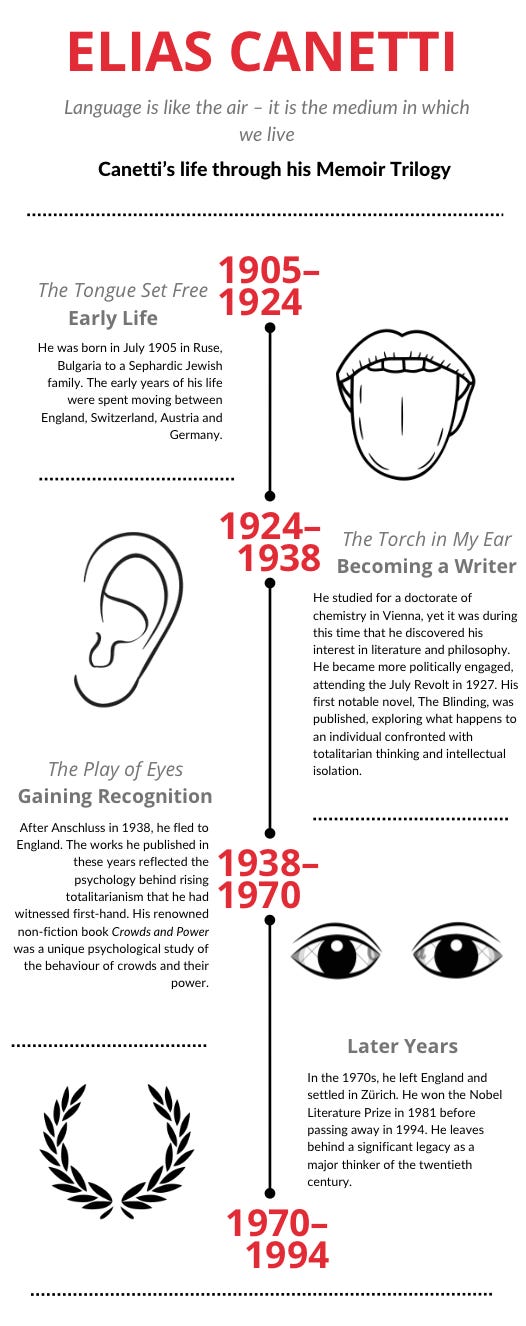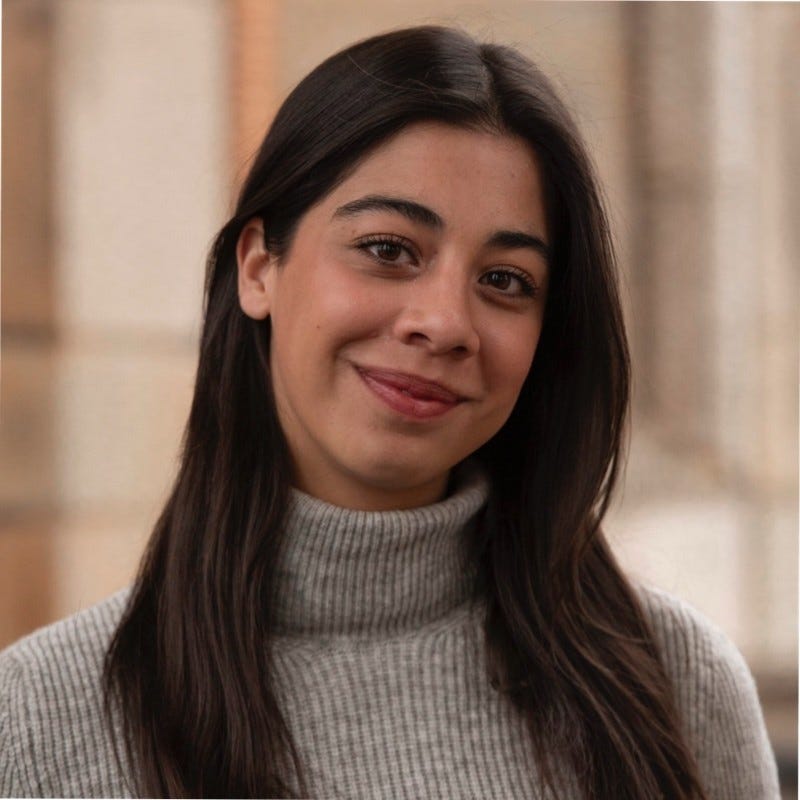Refugee to Nobel Winner: His Words Will Change How You See Power. 💔✨
Play & learn about Elias Canetti’s arty refugee experience 🎮
Click here to play & learn.
Back Story
Elias Canetti’s art is a reflection of his life as a refugee, who travelled and lived in numerous countries. Different cultures, ways of life and experiences are collected together, creating a kaleidoscope of perspectives on the profound social and philosophical reflections behind humanity.
Canetti was a German-language writer, who published novels, plays and memoirs exploring themes of power, crowds and totalitarianism. Winning the 1981 Nobel Prize for Literature, his works are considered highly valuable for their rich insight into the psychology behind the upheaval throughout Eastern Europe under the Nazi regime.
He was born in July 1905 in Ruse, Bulgaria to a Sephardic Jewish family. The early years of his life were spent moving between England, Switzerland, Austria and Germany. He completed a doctorate of chemistry at the University of Vienna, yet it was during this time that he discovered his interest in literature, publishing his first books, including The Blinding, soon after graduating in 1929.
In 1938 with the annexation of Austria by Nazi Germany (Anschluss), he was forced to flee Vienna to seek refuge in England. He spent the next thirty years of his life in England, publishing works, most notably his memoir trilogy (The Tongue Set Free, The Torch in My Ear, The Play of Eyes). He spent the last twenty years of his life in Zürich, before passing away in 1994.
The mixed background of his childhood is united in Canetti’s works, as is best described in his Nobel Prize presentation speech: “The exiled and cosmopolitan author Canetti has one native land, and that is the German language.” The countries and Canetti’s experiences there come to life in his works.
His most well-known work, the non-fiction book Crowds and Power, not only draws from observations made during the rise of the Nazism but also his first-hand experiences of riots in Frankfurt when he attended high school there. Canetti’s broad outlook cements him as a major thinker of the twentieth century, who’s work helps us understand humanity and how it works.
In this post Eilis highlights the arty refugee experience of Elias Canetti. She is a citizen journalist on a placement with us organised by Oxford University Career Services. She also organised the micro game to make the journalistic experience interactive.
Thank you for reading an A4R 🎨 Post. Don’t forget to visit our gift shop here. Every purchase scales our impact and pays our bills.






